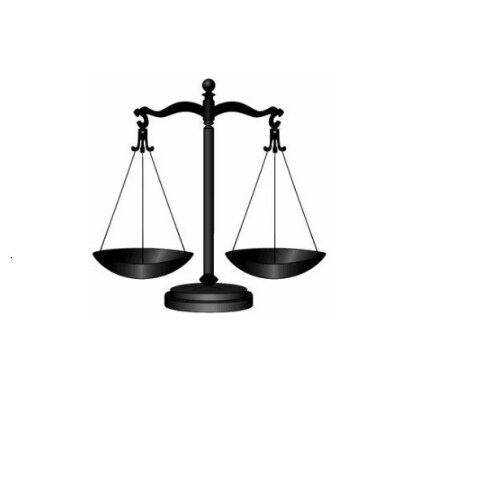Best Father's Rights Lawyers in Port Harcourt
Share your needs with us, get contacted by law firms.
Free. Takes 2 min.
Free Guide to Hiring a Family Lawyer
List of the best lawyers in Port Harcourt, Nigeria
About Father's Rights Law in Port Harcourt, Nigeria
Understanding Fathers' Rights within the Nigerian context is somewhat complex due to the interplay of statutory, customary, and religious laws. Father's rights in Port Harcourt, like anywhere in Nigeria, typically revolve around issues concerning marriage, divorce, child custody, paternity, and support. In general, fathers have equal rights to mothers in aspects such as child custody; however, the child's best interests are always paramount in legal deliberations.
Why You May Need a Lawyer
Navigating through the intricate laws surrounding Father's Rights can be challenging if you are unfamiliar with the jurisdiction's specific regulation. Legal advice could be invaluable when dealing with issues such as establishing fatherhood, negotiating child custody or visitation rights, undergoing a divorce, addressing child support arrangements, or adopting a child. What a competent lawyer offers is expertise, advice and a thorough exploration of your legal options to assure that your rights as a father are upheld.
Local Laws Overview
The local laws relating to Father's Rights in Port Harcourt fall under the broader Nigerian legal purview. The Child’s Right Act of 2003 is a pivotal document which stipulates legal safeguards for children, including custody, access, and maintenance provisions. It emphasizes that a child's best interests must be of utmost significance in any decision-making process. This Act primarily governs custody disputes. Additionally, the local customary laws and the Matrimonial Causes Act of 1978 also have a bearing on matters related to divorce and subsequent custody battles, aligning with the principle of the child's best interest.
Frequently Asked Questions
1. Do fathers have equal custody rights as mothers in Nigeria?
Yes. By default, both parents have equal rights to custody under Nigerian law. However, the court always prioritizes the best interest of the child in custody determinations.
2. How is 'best interest of a child' determined in Nigerian law?
The best interest of the child will depend on several factors, including the child's age, the overall health of parents, the child's existing relationship with each parent, and their ability to provide for the child's necessities.
3. How do I establish paternity in Nigeria?
Paternity can be established by acknowledgment through a declaration of the father or disputable presumptions, which may require legal counsel to help guide you through the legal intricacies.
4. What should I do if I am denied access to my child?
If you're denied access to your child, it's advisable to consult with a lawyer who can negotiate an agreement or pursue a court order that supports your parental rights.
5. Can a father lose his parental rights in Nigeria?
Yes, a father can lose his parental rights if the court determines that it is in the best interest of the child, typically due to cases of neglect, abuse, or abandonment.
6. How is child support determined?
Child support is determined based on each parent's income and the needs of the child.
7. Can I modify a child support order?
Yes, you can apply to modify a child support order if a substantial change in circumstances is proven.
8. How does divorce affect my rights as a father?
Divorce itself does not change your rights as a father. However, decisions regarding custody and visitation can affect your relationship and time spent with your child.
9. What are my rights in an adoption process?
Fathers have the right to give consent in an adoption process. If the child isn't yours by birth, you may also adopt the child upon satisfying certain legal conditions.
10. Can I represent myself in a child custody dispute?
While you can choose to represent yourself, it is often beneficial to have legal representation due to the complexity of the law.
Additional Resources
You may consider seeking information from governmental bodies such as the National Human Rights Commission, the Legal Aid Council of Nigeria, or organizations such as The International Federation of Women Lawyers, Nigeria (FIDA Nigeria), that deal with family law issues. These resources can provide direction, abuse mitigation, and sometimes legal assistance for those in dire need.
Next Steps
If you require legal assistance, consider consulting with a lawyer that specializes in family law or father's rights. Ensure that your lawyer fully abides by statutory, customary, Islamic, or English law as may be relevant to your situation. It would help if you also familiarize yourself with the law to understand its implications fully. Remember, in every circumstance, the well-being and best interest of the child must be the primary consideration in all disputes.
Lawzana helps you find the best lawyers and law firms in Port Harcourt through a curated and pre-screened list of qualified legal professionals. Our platform offers rankings and detailed profiles of attorneys and law firms, allowing you to compare based on practice areas, including Father's Rights, experience, and client feedback.
Each profile includes a description of the firm's areas of practice, client reviews, team members and partners, year of establishment, spoken languages, office locations, contact information, social media presence, and any published articles or resources. Most firms on our platform speak English and are experienced in both local and international legal matters.
Get a quote from top-rated law firms in Port Harcourt, Nigeria — quickly, securely, and without unnecessary hassle.
Disclaimer:
The information provided on this page is for general informational purposes only and does not constitute legal advice. While we strive to ensure the accuracy and relevance of the content, legal information may change over time, and interpretations of the law can vary. You should always consult with a qualified legal professional for advice specific to your situation.
We disclaim all liability for actions taken or not taken based on the content of this page. If you believe any information is incorrect or outdated, please contact us, and we will review and update it where appropriate.










